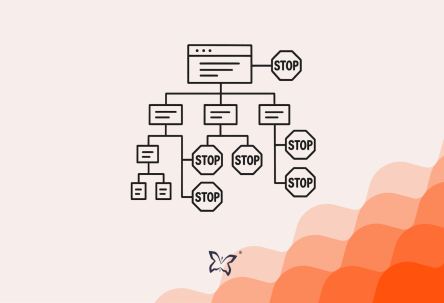We’re taking our meetings online.
We are using a range of online video options so please get in touch to have a chat.

Need expert advice?
Why not give us a call and see how we can help you with your project?
01460 984284We are using a range of online video options so please get in touch to have a chat.

Why not give us a call and see how we can help you with your project?
01460 984284Jargon-free, experience-backed insights to guide your digital decisions.

Pete Fairburn

Before any major project, whether it’s constructing a building, developing new machinery, or designing software, there’s always a scoping or planning phase. It’s the part where you define the problem, explore options, and make sure the project is commercially and operationally sound before any heavy investment begins.
Digital projects are no different.
This early consultative stage, something we call a discovery phase in digital, digs into how the business actually operates, not just how it’s described on paper. It examines processes, dependencies, and the commercial logic behind the idea.
By the end, you’ll know whether the concept is viable, what it should look like, or whether it’s the right move at all.
And sometimes, that last outcome delivers the highest return.
Yes. A proper scoping or discovery phase can reveal when a project idea isn’t ready, when timing is wrong, or when the business itself needs refinement before any technology can help.
Take one example. A successful company wanted us to create a unified digital system to manage operations across multiple departments. It sounded perfectly logical. But once workflows were mapped and teams were interviewed, a different issue appeared.
Each department worked differently. There were no shared processes, no common standards, and no clear way of working.
The problem wasn’t the lack of a system, it was the lack of consistency.
Building software at that point would only have locked those inconsistencies into place. The smarter investment was to align operations first. That single insight saved the company hundreds of thousands of pounds and clarified their next move.
That happens more often than most people expect.
Another business wanted to develop its own proprietary system to remove dependency on a supplier and create intellectual property that could increase the company’s valuation at sale. Sensible reasoning. But once the scoping phase modelled costs, dependencies, and risks, the business case fell apart.
The proposed platform would have been expensive, complex, and difficult to maintain — with no clear route to return on investment.
The right decision was not to proceed.
That conclusion, while unexpected, was worth every penny spent on the scoping phase. It prevented hundreds of thousands from being wasted on a project that wouldn’t have delivered commercial value.
A structured scoping and discovery phase is one of the most valuable parts of any digital project. It’s a small, contained investment that protects a much larger one.
This is where assumptions are challenged, risks are identified, and commercial logic is tested before development begins. It gives decision-makers clarity: not just about what to build, but whether to build at all.
When it confirms that your idea is ready, you move forward with confidence. When it reveals that it isn’t, you’ve still achieved something important: you’ve avoided a costly mistake and gained insight into what needs fixing first.
Either way, it delivers measurable ROI.
A small investment in scoping and discovery can protect a much larger one in development.
Isn’t a scoping or discovery phase just adding time and cost?
It’s the opposite. A modest upfront scoping phase saves far greater cost later by revealing what’s viable, what’s risky, and what isn’t yet ready.
What happens during scoping?
Typically, it involves stakeholder workshops, workflow mapping, technical audits, and business case evaluation. The goal is to understand how things really operate before investing in development.
Does every scoping phase lead to a build?
No — and that’s the point. Sometimes it results in a clear, actionable roadmap. Other times, it highlights deeper issues that need addressing first. Both outcomes protect investment and deliver clarity.

Commercial Director
Pete is a Co-founder and Director at morphsites. He helps businesses turn complex digital challenges into clear, achievable plans. He’s especially focused on making sure websites and marketing efforts actually support the goals of the business, and don’t just look good on paper.
 PPC Frustrations Part 1 - Why Google Ads often fail before the first ad even runs
PPC Frustrations Part 1 - Why Google Ads often fail before the first ad even runs
 PPC Frustrations Part 2 - Why do Google Ads get clicks but still fail to convert?
PPC Frustrations Part 2 - Why do Google Ads get clicks but still fail to convert?
 PPC Frustrations Part 3 - Why don’t Google Ads leads turn into customers?
PPC Frustrations Part 3 - Why don’t Google Ads leads turn into customers?
 The hidden cost of indecision
The hidden cost of indecision
 Finding the extraordinary in the ordinary
Finding the extraordinary in the ordinary
 Before you build, find out if you should
Before you build, find out if you should
 Are you solving the right problem?
Are you solving the right problem?
 More signal, less noise
More signal, less noise
 Do you still need an agency in 2025 or can AI do it all?
Do you still need an agency in 2025 or can AI do it all?
 Is AI changing how we should plan websites and marketing strategies?
Is AI changing how we should plan websites and marketing strategies?
 Planning a Website or Digital Project? Here’s What to Do First.
Planning a Website or Digital Project? Here’s What to Do First.
 Can AI replace your development team?
Can AI replace your development team?
 Why one client spent 10x more on a custom website and never looked back
Why one client spent 10x more on a custom website and never looked back
Not sure where to start with your digital project?
We’ve guided businesses through complex builds, integrations, and marketing strategies. Let’s have a conversation about how we can support your goals.


Before investing in a new website or digital marketing, make sure you’re building the right thing. This article explains the value of strategy, UX, and technical planning through the lens of a well-known brand that skipped discovery and paid the price.

By Pete Fairburn

Before you jump into designing, coding, or marketing, ask this: have you defined the problem clearly enough? Too many projects start with a solution in search of a problem. This piece explores why defining the real issue first can transform the outcome of any digital project.

By Pete Fairburn
Need expert advice?
Let’s talk results
© 2026 morphsites Ltd. All rights reserved E&OE. Registered in England no. 07116238. The ‘morphsites’ wordmark and butterfly device are registered trademarks of morphsites Ltd.